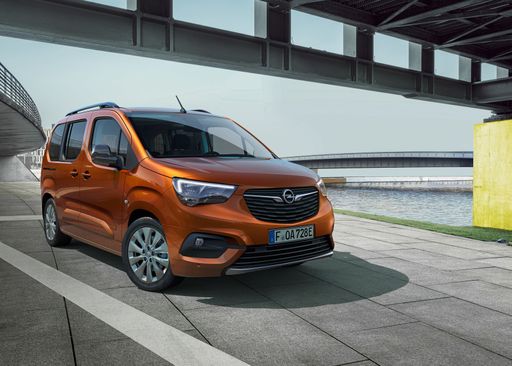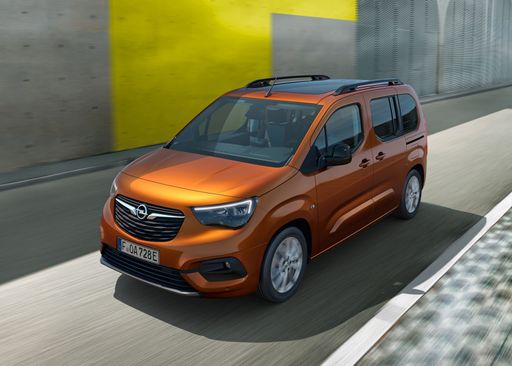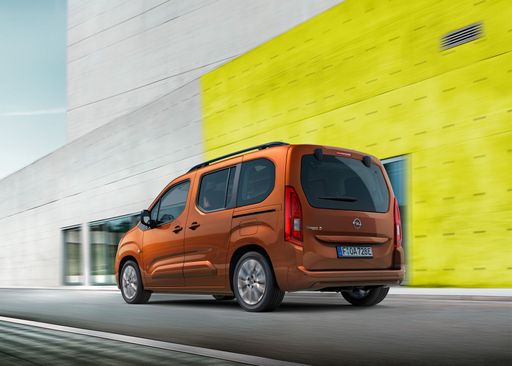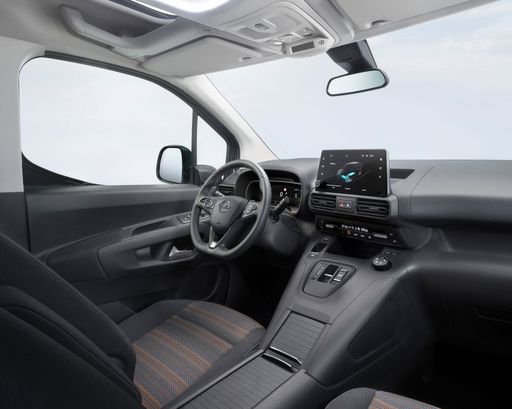Vauxhall Combo vs VW Tiguan – Performance, range & efficiency compared
Everyday use, family trips or long-distance drives – here’s where the differences show.
Discover whether Vauxhall Combo or VW Tiguan fits your lifestyle better.
Costs and Efficiency:
Price and efficiency are often the first things buyers look at. Here it becomes clear which model has the long-term edge – whether at the pump, the plug, or in purchase price.
Vauxhall Combo has a distinct advantage in terms of price – it starts at 24800 £, while the VW Tiguan costs 32800 £. That’s a price difference of around 7937 £.
Fuel consumption also shows a difference: VW Tiguan manages with 0.40 L and is therefore convincingly more efficient than the Vauxhall Combo with 5.50 L. The difference is about 5.10 L per 100 km.
As for range, the Vauxhall Combo performs decisively better – achieving up to 345 km, about 216 km more than the VW Tiguan.
Engine and Performance:
Under the bonnet, it becomes clear which model is tuned for sportiness and which one takes the lead when you hit the accelerator.
When it comes to engine power, the VW Tiguan has a decisively edge – offering 272 HP compared to 136 HP. That’s roughly 136 HP more horsepower.
In acceleration from 0 to 100 km/h, the VW Tiguan is decisively quicker – completing the sprint in 5.90 s, while the Vauxhall Combo takes 11.30 s. That’s about 5.40 s faster.
In terms of top speed, the VW Tiguan performs clearly perceptible better – reaching 242 km/h, while the Vauxhall Combo tops out at 184 km/h. The difference is around 58 km/h.
There’s also a difference in torque: VW Tiguan pulls noticeable stronger with 400 Nm compared to 300 Nm. That’s about 100 Nm difference.
Space and Everyday Use:
Whether family car or daily driver – which one offers more room, flexibility and comfort?
Seats: Vauxhall Combo offers evident more seating capacity – 7 vs 5.
In curb weight, Vauxhall Combo is hardly perceptible lighter – 1530 kg compared to 1599 kg. The difference is around 69 kg.
In terms of boot space, the Vauxhall Combo offers distinct more room – 850 L compared to 652 L. That’s a difference of about 198 L.
In maximum load capacity, the Vauxhall Combo performs evident better – up to 2693 L, which is about 1043 L more than the VW Tiguan.
When it comes to payload, Vauxhall Combo noticeable takes the win – 840 kg compared to 533 kg. That’s a difference of about 307 kg.
Who wins the race?
The VW Tiguan proves to be outperforms in nearly all aspects and therefore becomes our DriveDuel Champion!
VW Tiguan is the better all-rounder in this comparison.

VW Tiguan
Vauxhall Combo
The Opel Combo high-roof estate car stands out for its impressive versatility, making it an ideal choice for both families and professionals. Its spacious interior and clever storage solutions ensure a comfortable ride and plenty of room for all your needs. With a focus on practicality and efficient design, the Combo seamlessly combines functionality with modern driving technology.
details @ media.stellantis.com
@ media.stellantis.com
 @ media.stellantis.com
@ media.stellantis.com
 @ media.stellantis.com
@ media.stellantis.com
 @ media.stellantis.com
@ media.stellantis.com
VW Tiguan
The VW Tiguan presents itself as a versatile and practical option in the SUV market, combining a stylish design with a spacious and comfortable interior. It offers a smooth driving experience, making it well-suited for both urban environments and longer journeys. With its focus on safety and innovative technology features, the Tiguan remains a compelling choice for families and adventurers alike.
details @ Volkswagen
@ Volkswagen
 @ Volkswagen
@ Volkswagen
 @ Volkswagen
@ Volkswagen
 @ Volkswagen
@ Volkswagen
 @ Volkswagen
@ Volkswagen
 @ Volkswagen
@ Volkswagen

|

|
|
|
|
Costs and Consumption |
|
|---|---|
|
Price
24800 - 36500 £
|
Price
32800 - 51900 £
|
|
Consumption L/100km
5.5 - 5.9 L
|
Consumption L/100km
0.4 - 8.4 L
|
|
Consumption kWh/100km
18.5 - 18.8 kWh
|
Consumption kWh/100km
-
|
|
Electric Range
333 - 345 km
|
Electric Range
119 - 129 km
|
|
Battery Capacity
-
|
Battery Capacity
19.70 kWh
|
|
co2
0 - 155 g/km
|
co2
8 - 190 g/km
|
|
Fuel tank capacity
53 L
|
Fuel tank capacity
45 - 58 L
|
Dimensions and Body |
|
|---|---|
|
Body Type
High Roof Estate
|
Body Type
SUV
|
|
Seats
5 - 7
|
Seats
5
|
|
Doors
4 - 5
|
Doors
5
|
|
Curb weight
1530 - 1922 kg
|
Curb weight
1599 - 1890 kg
|
|
Trunk capacity
597 - 850 L
|
Trunk capacity
490 - 652 L
|
|
Length
4410 - 4760 mm
|
Length
4539 mm
|
|
Width
1848 mm
|
Width
1842 - 1859 mm
|
|
Height
1812 - 1818 mm
|
Height
1656 - 1658 mm
|
|
Max trunk capacity
2126 - 2693 L
|
Max trunk capacity
1486 - 1650 L
|
|
Payload
430 - 840 kg
|
Payload
460 - 533 kg
|
Engine and Performance |
|
|---|---|
|
Engine Type
Electric, Diesel
|
Engine Type
Plugin Hybrid, Petrol, Petrol MHEV, Diesel
|
|
Transmission
Automatic, Manuel
|
Transmission
Automatic
|
|
Transmission Detail
Reduction Gearbox, Manual Gearbox, Automatic Gearbox
|
Transmission Detail
Dual-Clutch Automatic
|
|
Drive Type
Front-Wheel Drive
|
Drive Type
Front-Wheel Drive, All-Wheel Drive
|
|
Power HP
102 - 136 HP
|
Power HP
130 - 272 HP
|
|
Acceleration 0-100km/h
11.30 s
|
Acceleration 0-100km/h
5.9 - 10.6 s
|
|
Max Speed
135 - 184 km/h
|
Max Speed
198 - 242 km/h
|
|
Torque
250 - 300 Nm
|
Torque
220 - 400 Nm
|
|
Number of Cylinders
4
|
Number of Cylinders
4
|
|
Power kW
75 - 100 kW
|
Power kW
96 - 200 kW
|
|
Engine capacity
1499 cm3
|
Engine capacity
1498 - 1984 cm3
|
General |
|
|---|---|
|
Model Year
2024
|
Model Year
2024 - 2025
|
|
CO2 Efficiency Class
A, E
|
CO2 Efficiency Class
B, G, D, E, F
|
|
Brand
Vauxhall
|
Brand
VW
|
What drive types are available for the Vauxhall Combo?
Available configurations include Front-Wheel Drive.
The prices and data displayed are estimates based on German list prices and may vary by country. This information is not legally binding.
